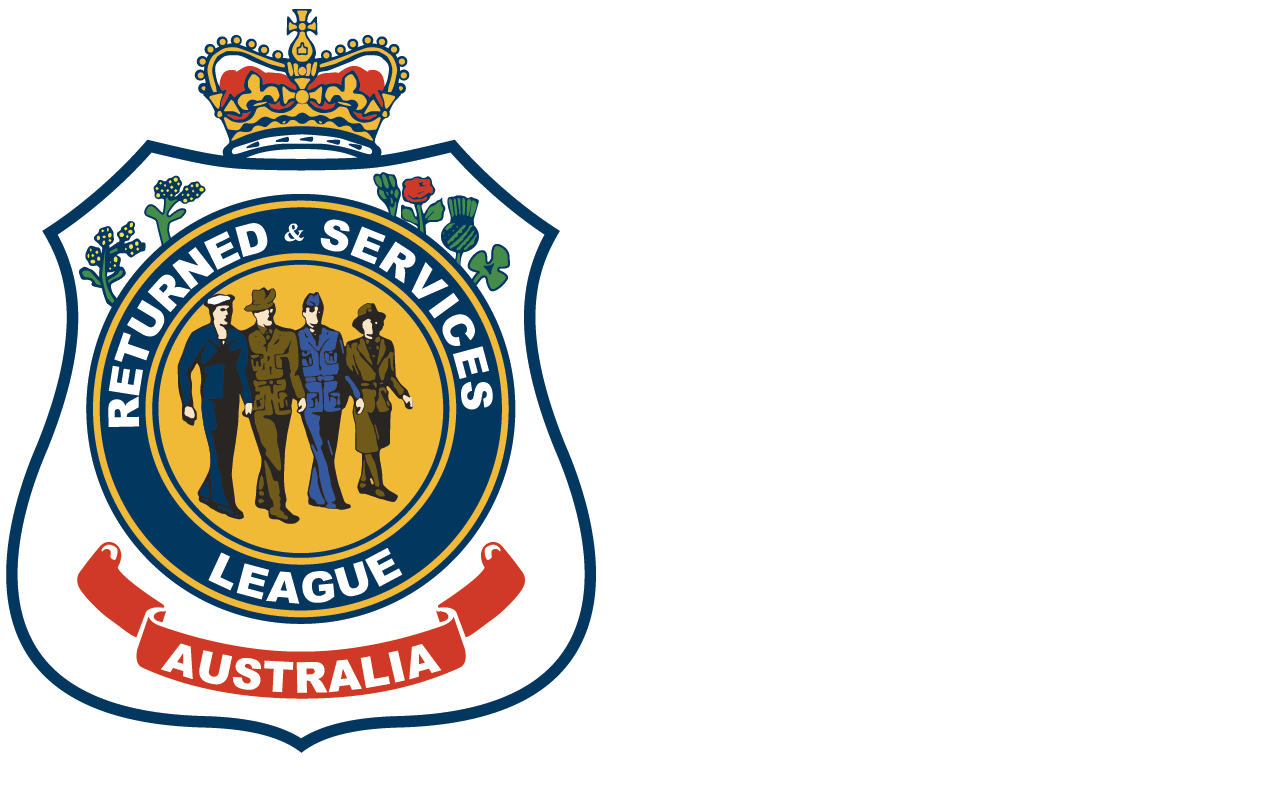JAPAN-AUSTRALIA GRASSROOTS EXCHANGE PROGRAM
Promoting post war reconciliation, understanding and goodwill between Japan and Australia
About the Grassroots Program
The Japan-Australia Grassroots Exchange Program aims to deepen the mutual understanding of the peoples of Japan and Australia by inviting descendants of former Australian POWs to Japan. It offers an opportunity for healing for descendants of Prisoners of War.
Each year, the Japanese Embassy in Australia works with RSL Australia to find suitable participants for the program. More than 120 POWs and POW descendants have taken part in the program since it began.
By participating in this exchange, representatives of the RSL and descendants of POWs have an opportunity to promote post war reconciliation, understanding and goodwill between both countries.
The tour involves visiting sites including the Hodogaya (Yokohama) Commonwealth War Cemetery, the Hiroshima Peace Memorial Park, the Museum and Genbaku Dome – the epicentre of the atomic bombing. Participants also visit the POW Research Centre and have the opportunity to meet with the Japanese people, experience the culture and strengthen the bonds that have now developed between Australia and Japan.
Photo: 2023 Grassroots participants visit the atomic bomb site in Hiroshima.
2025 Grassroots Exchange
The Japan-Australia Grassroots Exchange took place from 2-8 March 2025.
Participants Arthur Pegg, Harry Maxwell Tysoe, and Dr Robert Webster attended a POW research forum, met with Parliamentary Vice-Minister for Foreign Affairs, Ms. Akiko Ikuina, and laid flowers at the Yokohama Commonwealth War Graves Cemetery. They visited the Hiroshima Museum and heard harrowing stories of what took place. They laid a wreath at the Memorial Monument for Hiroshima, where the names of those who died as a result of the atomic bomb are etched into the memorial. They visited the POW camp at Kobe where Harry’s grandfather was imprisoned. They visited the Juganji Temple to the east of Osaka city where a Buddhist priest was given charge to watch over the ashes of 1086 POWs, including Harry’s grandfather, until the end of the war. Participants described the exchange as a pilgrimage and a once in a lifetime opportunity.
This program, fostering reconciliation and friendship, continues to build bridges between our nations.
Media links
2025 Participants
Attendees included Mr Arthur Pegg from RSL Tasmania and Mr Maxwell Tysoe from RSL WA along with Dr Robert Webster, RSL Victoria State President, representing RSL Australia.
Arthur Pegg - RSL Tasmania
Arthur Pegg is the son of Private Frederick Pegg, 2/40 Battalion. Private Fred Pegg fought during World War Two in Java and Timor. In February 1942, he was declared missing and was later confirmed as a prisoner of war (POW). He was held as a prisoner of war in Java and then Changi prison camp. Fred was a band man in his battalion and carried his bugle throughout his years in the prison camps. Fred gained possession of a Union flag. On it are scrawled 89 names and details of Fred and his fellow POWs, with hometowns and Service Numbers included. The flag, blood-soaked and bullet-hole-ridden, has been donated to the Swansea RSL Sub-branch. It carries the legacy of the prisoners at Changi, those who made it home and those who did not.
Arthur himself has proudly served his community, volunteering in the rural Tasmanian town of Campbell Town as both a volunteer driver for the Fire Brigade and as the driver for the ambulance with his wife providing nursing assistance. Arthur is looking forward to paying his respect to Hiroshima and Nagasaki and understanding the devastating effects of war from the Japanese perspective. He wants to share his father’s stories and hear the stories of others.
Harry Maxwell Tysoe - RSL WA
Harry Maxwell Tysoe is the grandson of POW Private Harry Tysoe, AIF 2/4th MGB, who died as a POW and is buried at Yokohama War Cemetery. He is also the grandson of POW Private Alfred Platt, AIF 2/3rd MGB, who made it home after being a POW in Java, Thailand and finally, Japan.
Private Harry Tysoe 2/4th Machine Gun Battalion, left his wife and four children at home and sailed aboard the Aquatania, arriving in Singapore on 25 January 1942. Singapore fell just weeks later and Harry was taken as POW. Harry was to call the different camps of Johore Bahru, Adam Park and Selarang Barracks Changi his home for the next 16 months. In May 1943, Harry, along with some 500 British and 300 Australians, formed ‘J’ Force and were loaded on the Weills Maru (Wales Maru) bound for Japan. It reached Moji Port, Kyushu, Japan, on June 7 1943, where the POWs were split up. Harry and 250 other Australians were sent by train to Kobe. Harry passed away on 26 November 1943 as a result of progressive cardiac failure and beriberi. His body was cremated at Kobe, and his ashes were kept, along with other POWs’ remains, by a kind priest at a temple called Juganji in Osaka. This temple was later moved to the outskirts of the city after the war. His remains are said to have been re-inturned at Yokahama War Cemetery – Japan at Plot B Row A Grave 14. Harry’s family did not find out his fate for another two years.
Alfred Platt (Alf) grew up in an orphanage in England. He emigrated to Australia in 1922 at 16 years of age. He worked on a farm and met his wife, Lillian, and they had two daughters together. They farmed Lillian’s family farm until the war broke out. Alf enlisted and was sent to Syria to train. In late 1941, the conflict in Asia was brewing, and Australian soldiers were called home from the Middle East to protect Australia from invasion from the north. The journey home was diverted, and they disembarked in Sumatra, where they were involved in direct conflict with the Japanese, minus their kitbags, Vickers Machine Guns and ammunition, which had been sent on to Australia on other transports. Alf became a POW in March 1942. He was transported to Thailand to work on the Burma-Thailand Railway. He survived the horrors of labouring on the Railway and was shipped via Singapore as a working party to Japan. In Japan, he was transported to Ohama by barge to advance the Japanese war machine again, this time as a labourer in Nippon. Alf and his fellow POWs were recovered from Ohama on September 13th 1945. After several months of rehabilitation, he was discharged in February 1946. Farm life beckoned him back to Narrikup, where he farmed happily with Lillian, his daughters Merle and Lorna and new son John until he retired to Albany in 1965. Alf passed away in Albany in 1977 aged 71, a life well lived.
Harry Maxwell Tysoe is the President of 2/4th Machine Gun Battalion ex members association and has been an advocate for both 2/4th and 2/3rd MGB Units for the past 15 years. He is the co-author of the 2/4th website, a Justice of the Peace and a retired School Principal. He is most interested in visiting the grave site of his paternal grandfather at Yokohama and the places where grandfathers were held.
previous tours
2024
RSL Deputy National President Duncan Anderson represented RSL Australia. Accompanying him from RSL Victoria was Ms. Joy Derham the daughter of Lance Corporal John ‘Jack’ Lonsdale, who was a Prisoner of War (POW) from 1942 – 1945, and Mr. Trent Beilken from RSL Queensland whose grandfather, Private Robert Rolls, became a POW six weeks shy of his 16th birthday in 1942. Duncan Anderson describes the trip as “an incredibly humbling experience.”
Read more:
Japan-Australia Grassroots Program leads reconciliation efforts for a better future - RSL Australia
Reconciling with Changi, Forgiving Hiroshima - RSL Queensland
2023
RSL National President Greg Melick represented RSL Australia. Accompanying him from RSL NSW was Lesley Callcott and Leigh Gilbert from RSL Queensland. Leigh is the daughter of Cyril Gilbert, who was captured after the fall of Singapore in 1942 and remained a prisoner for three and a half years, building the Burma-Thailand Railway and as a prisoner in Changi Prison. Leigh describes the Grassroots Exchange experience as an “amazing privilege” and a chance to seek closure, apology, and some idea of what Japanese people went through during WWII.
Read more:
POW’s Daughter shares her journey of reconciliation - RSL Queensland
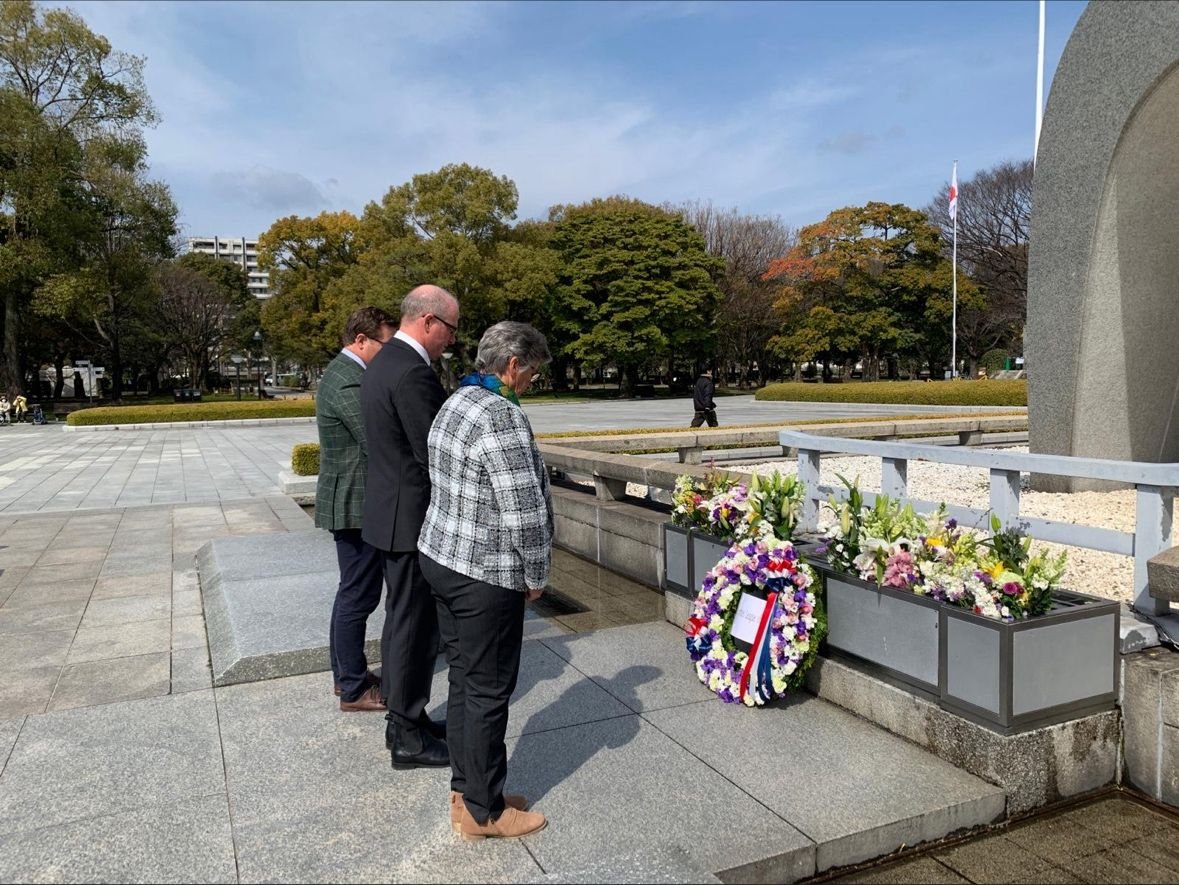
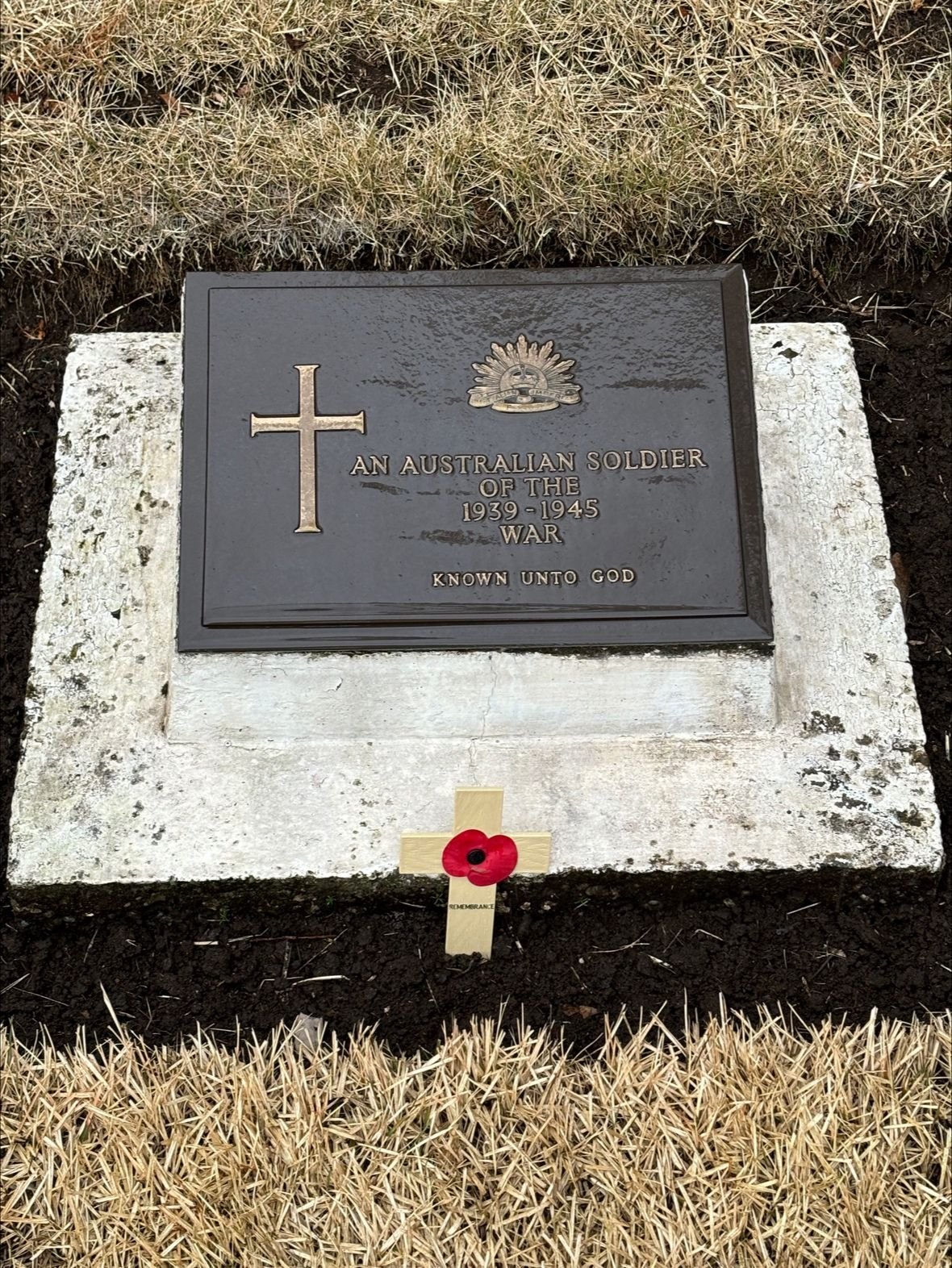
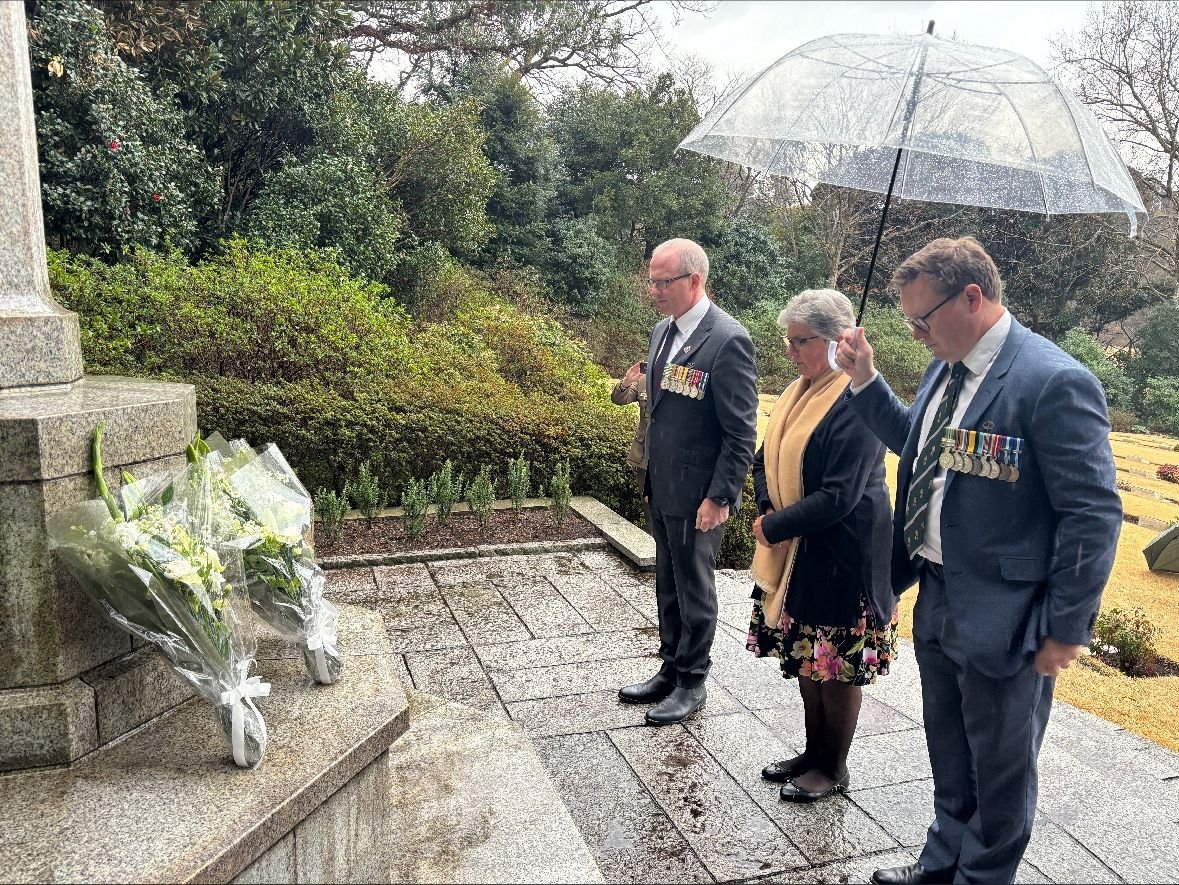
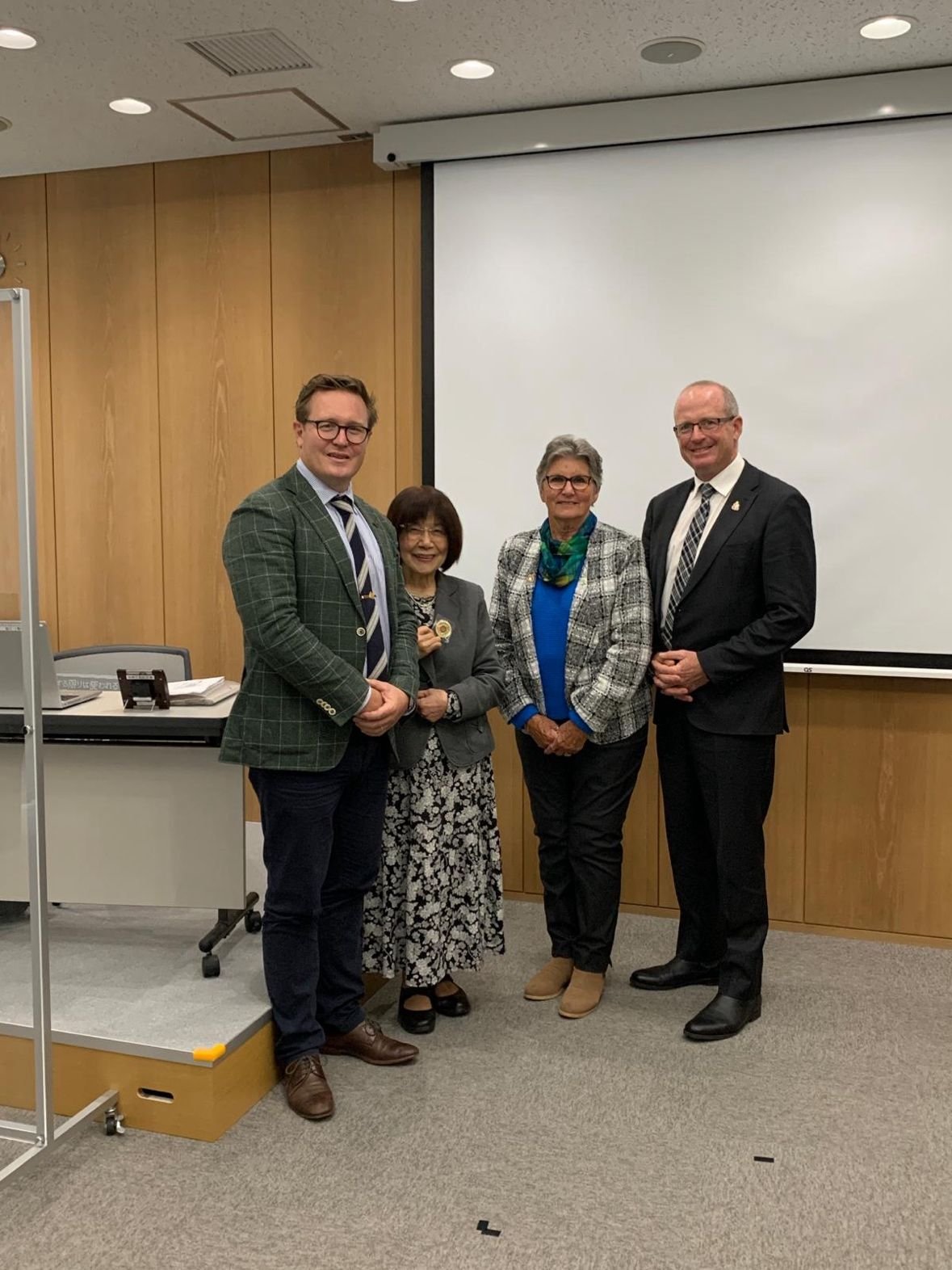
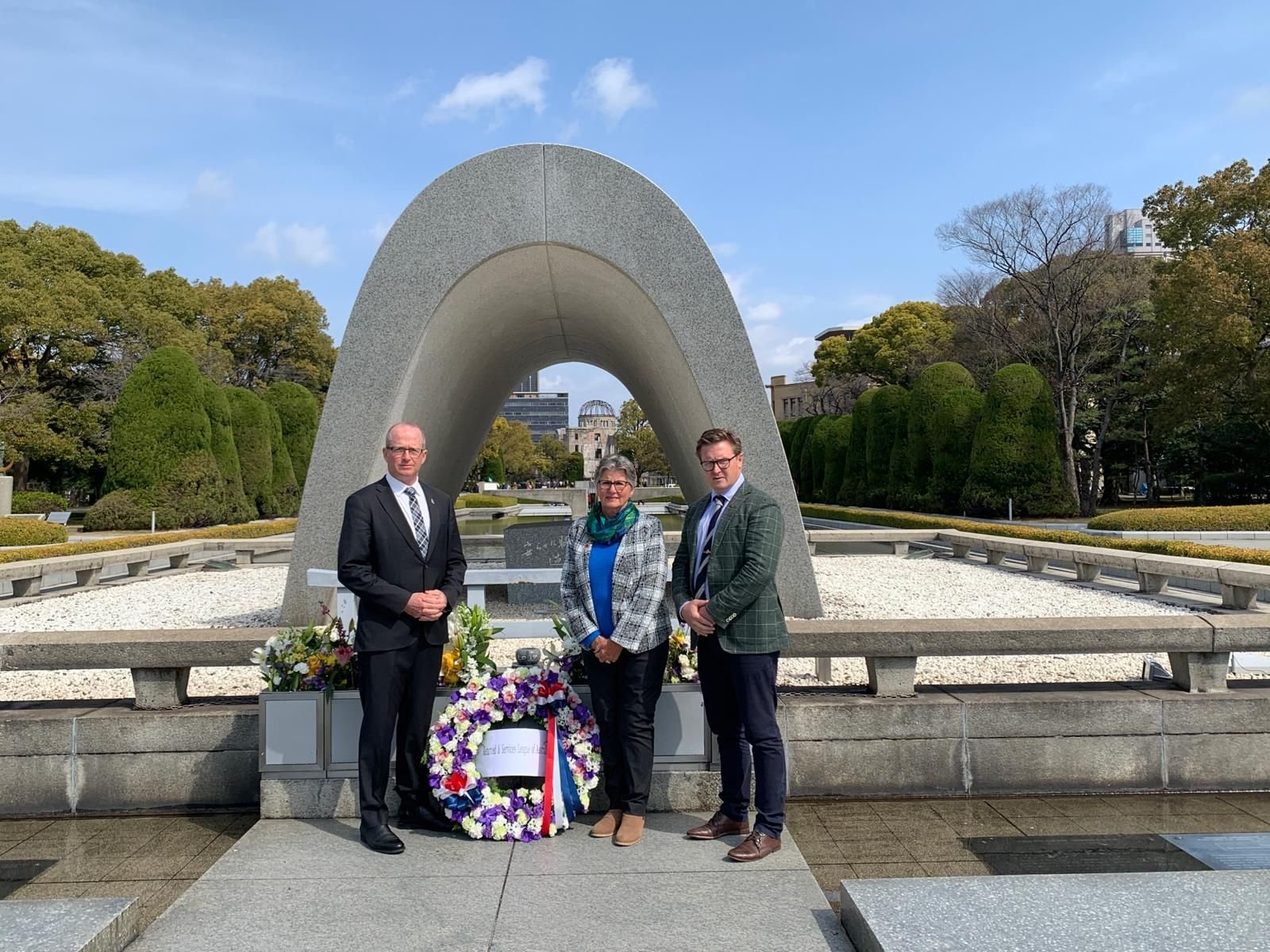
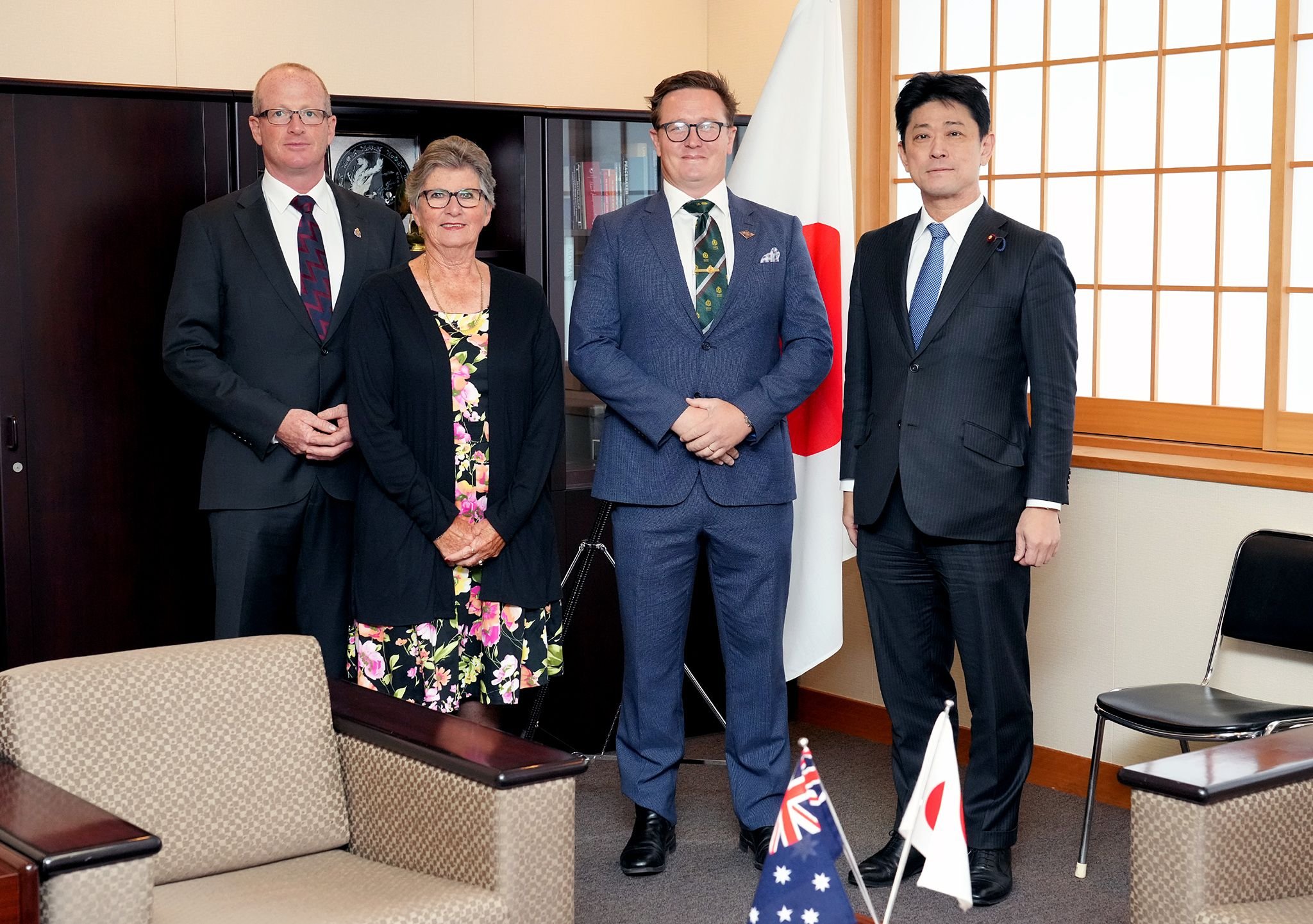
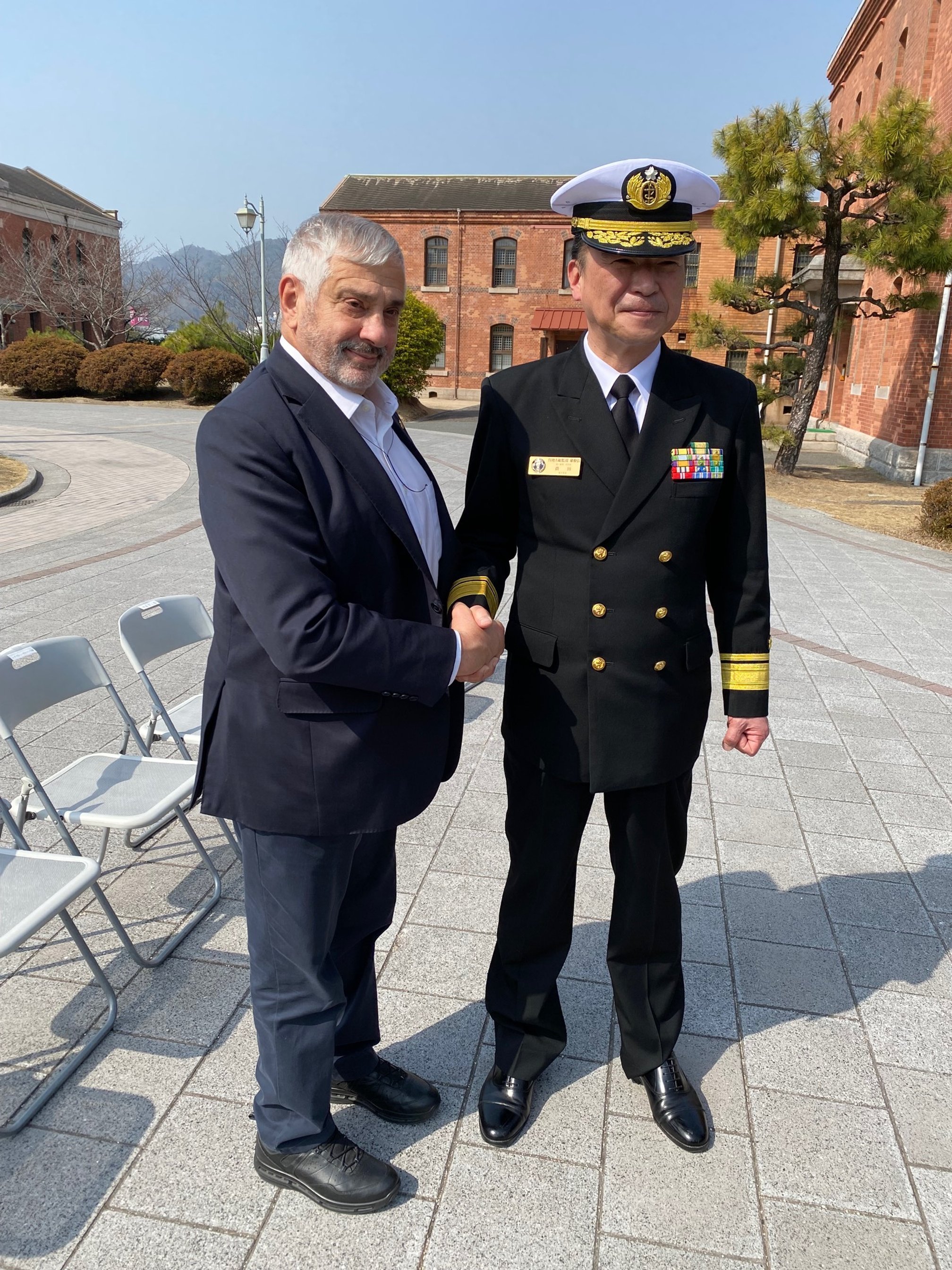
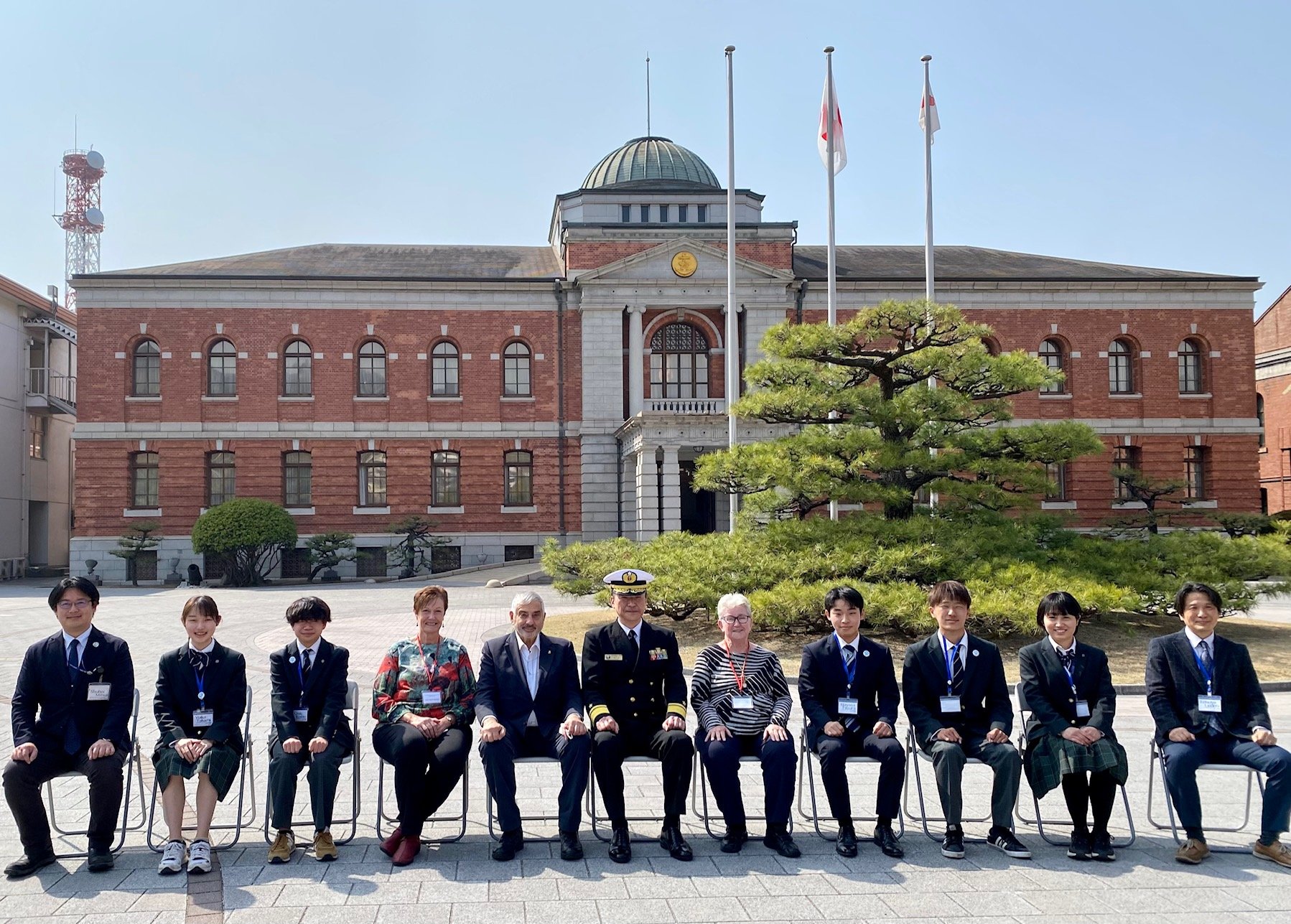
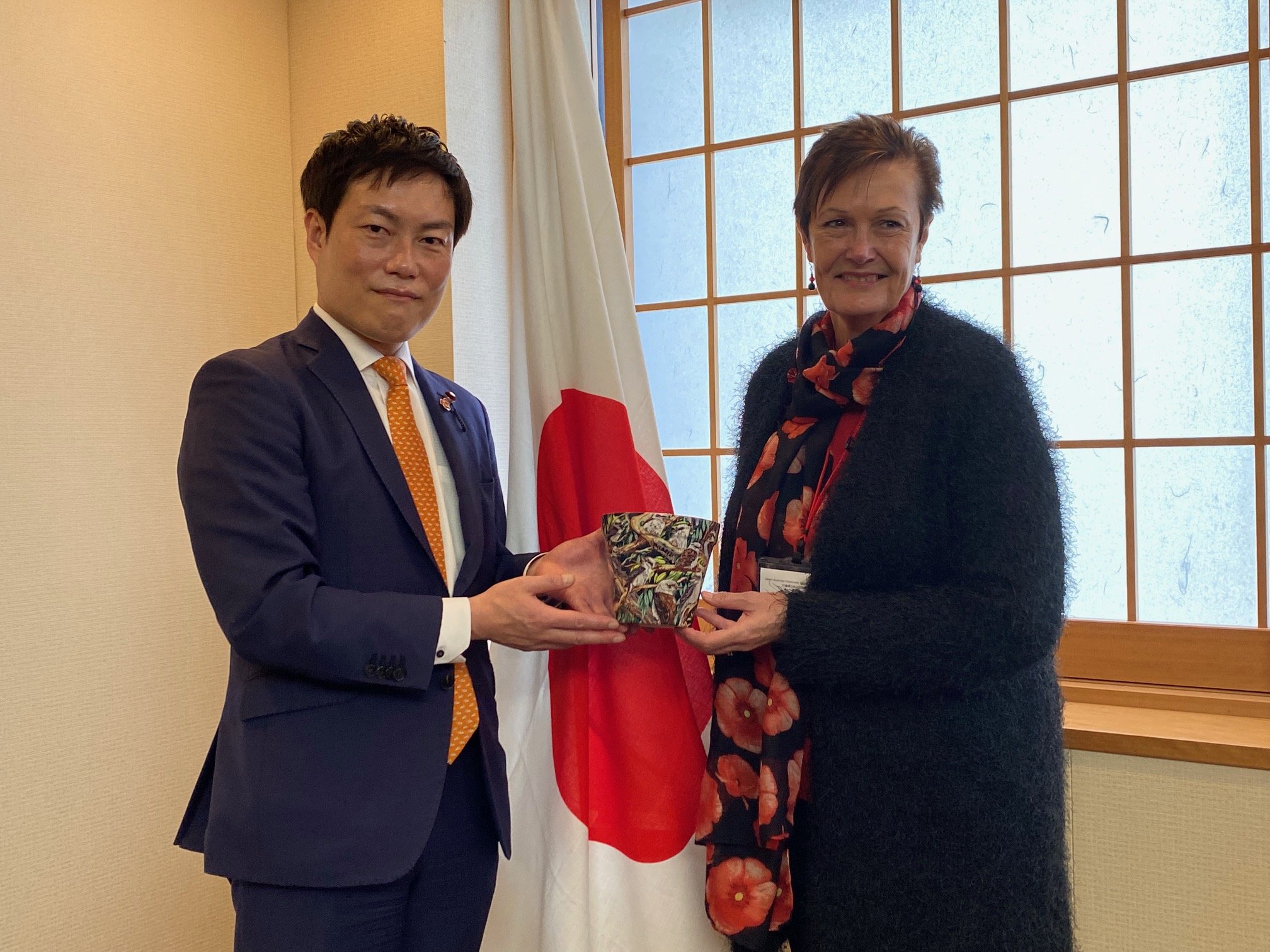
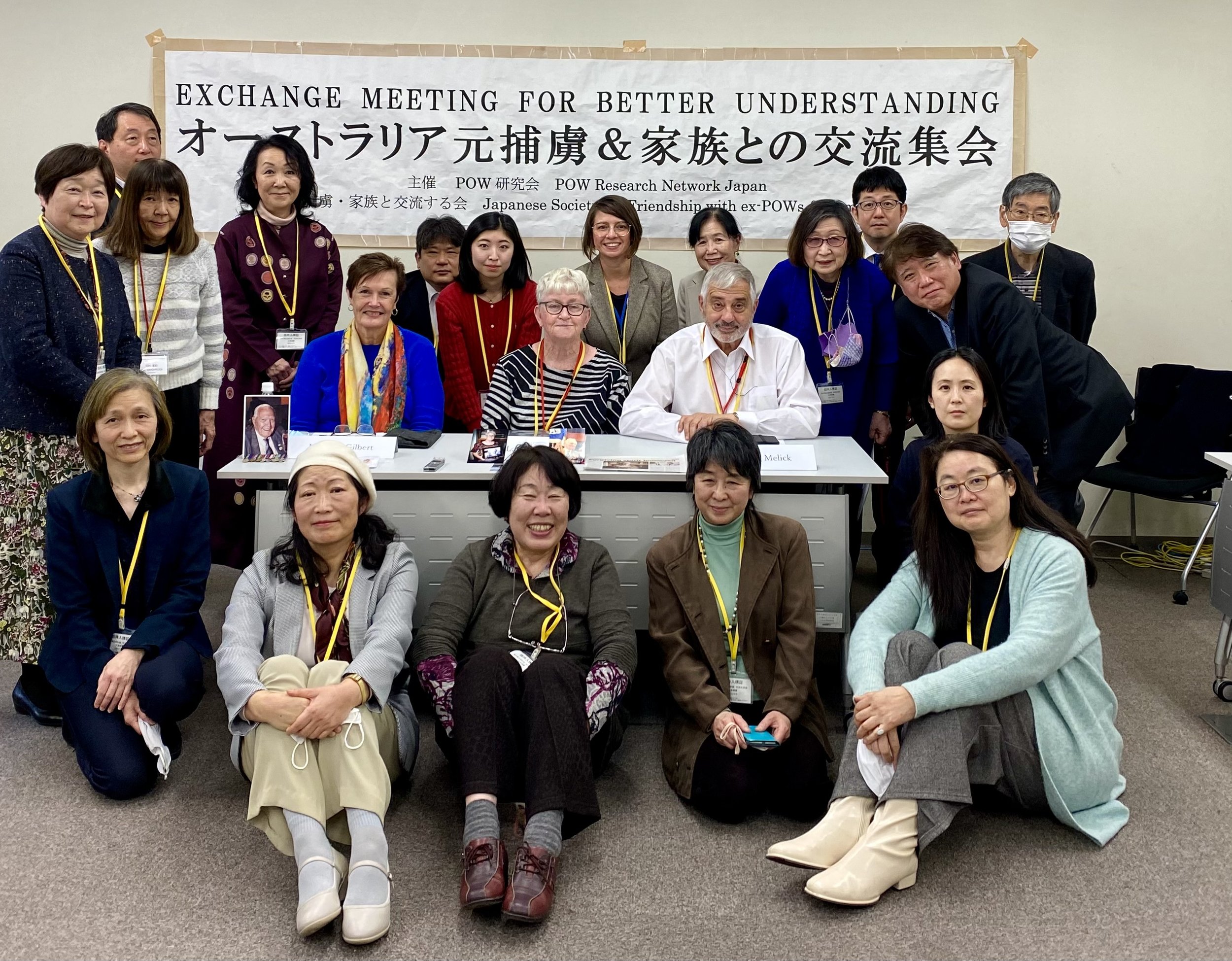
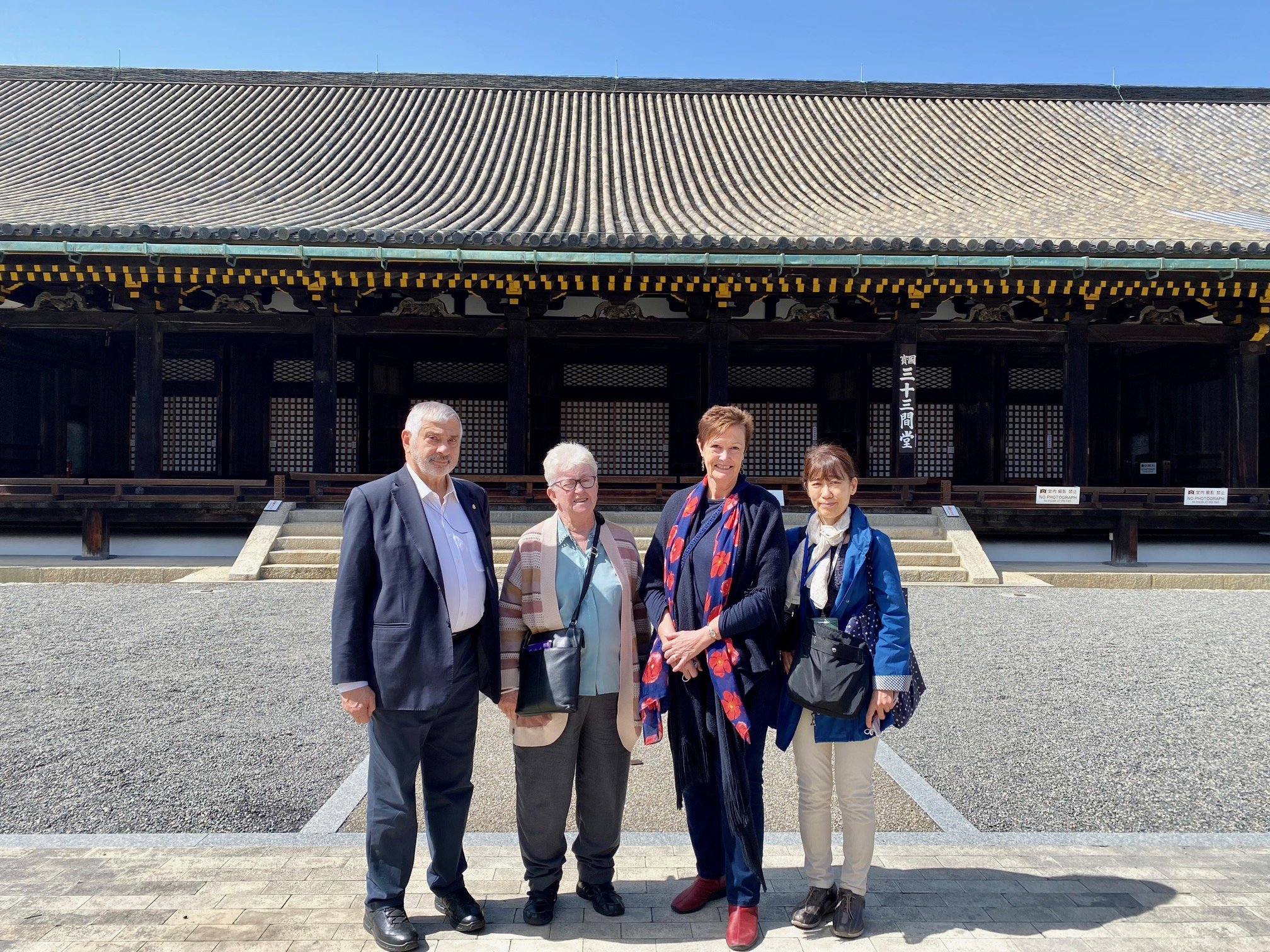
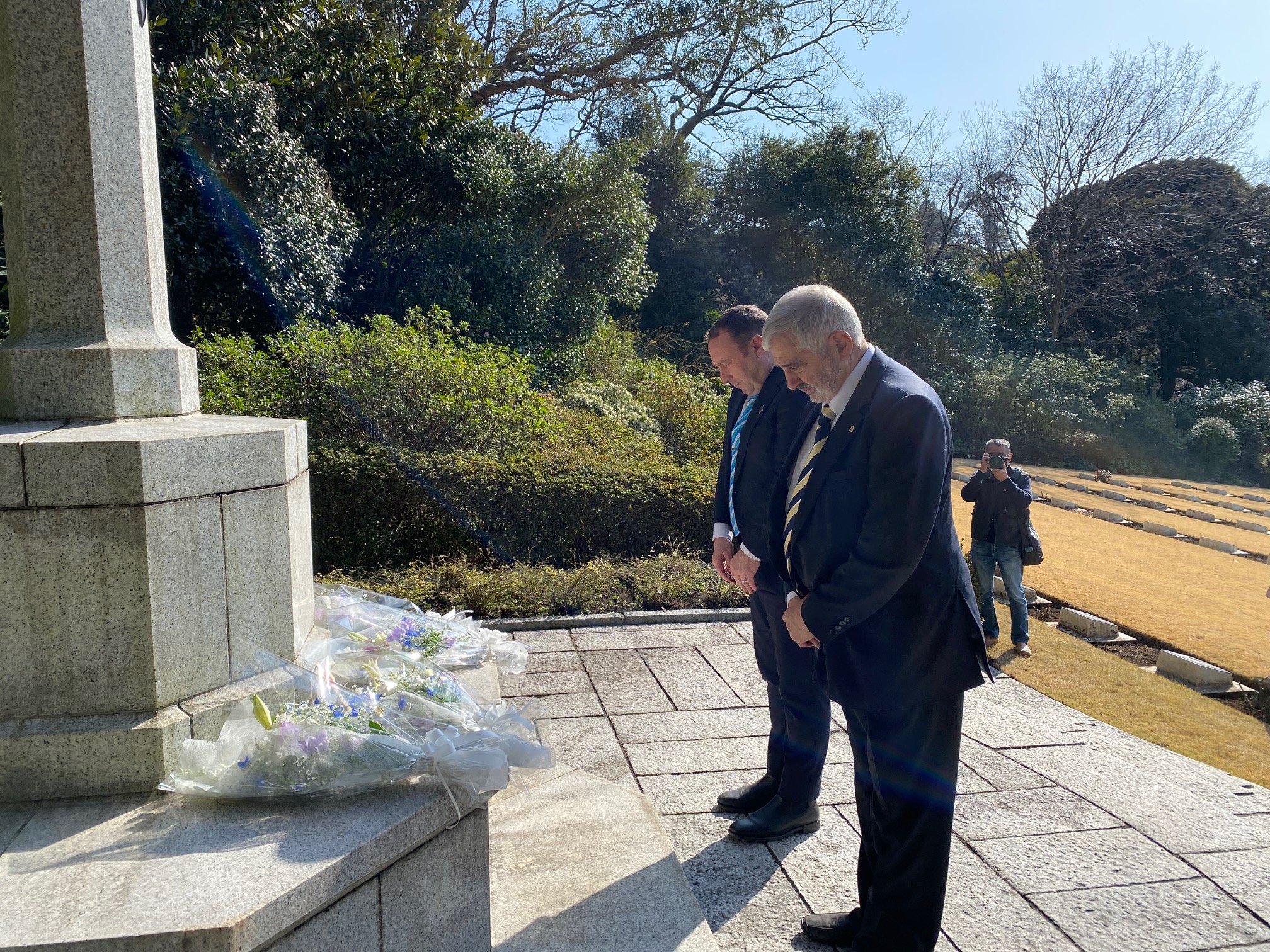
Applications for the Grassroots Exchange Program
This program is assessed each year. If it is approved to run, applications usually open in September for a tour the following year in February/March.
Prisoners of War, spouses of POWs, children and grandchildren of POWs are eligible to apply.
If you would like to be considered, you must complete the nomination form through your sub-branch. Sub-branches submit nominations to State Branches. State Branches review the applications and then forward two nominations to RSL Australia for consideration. Two participants are chosen for the program each year.
